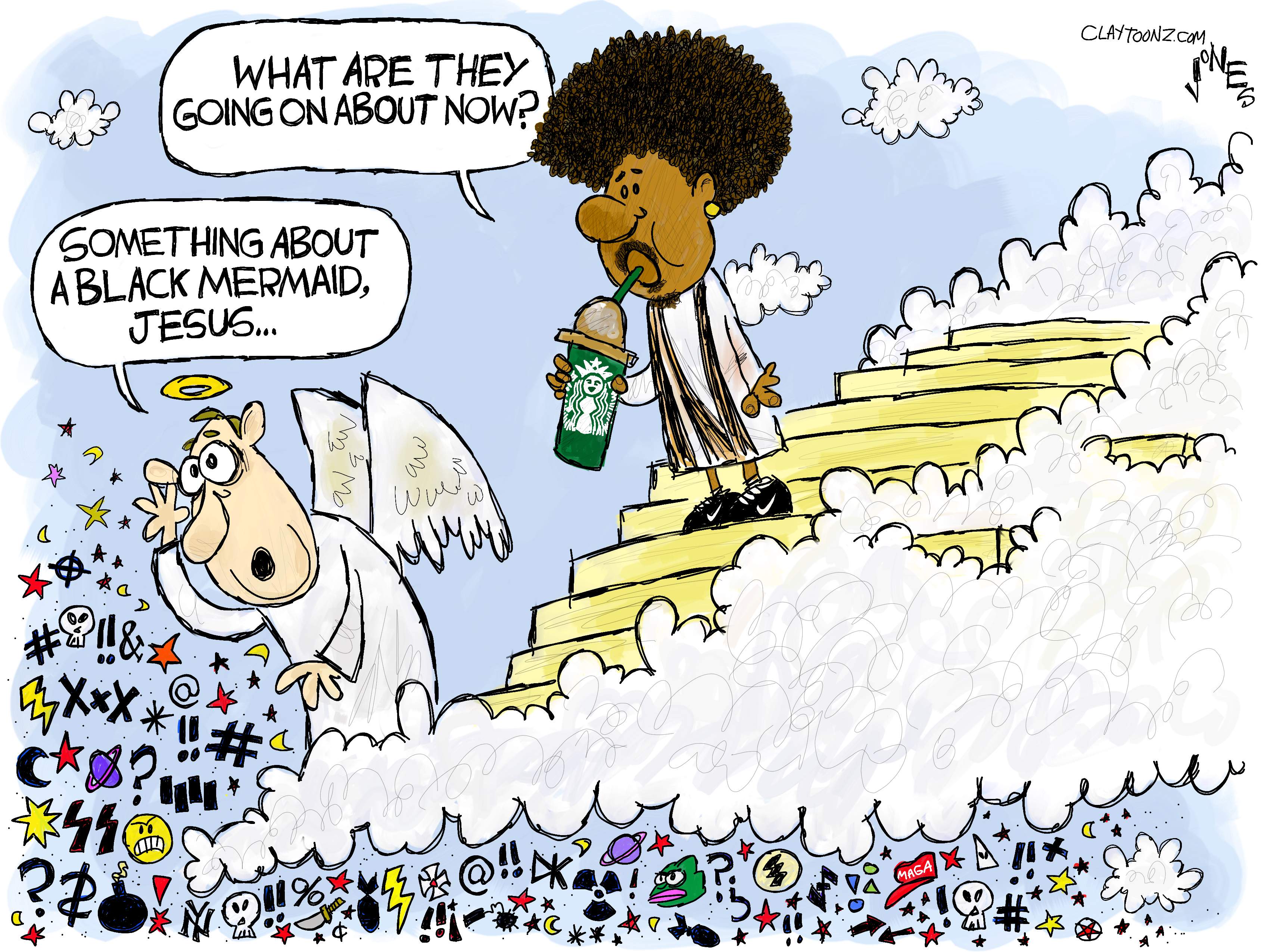A much easier Update this week than last, since everyone agrees on the front-runners, and since I don't do much of the weekly shifts in polling and none of the fundraising horse race.
After 'The Draw' last night I thought I would title the first of week-after-next's pre-debate posts "White Night". But there's always something better.
Had Bernie and Liz wound up on Wednesday, it could have been 'Progressive Night', with Tuesday being 'Centrist Central'. Anyway, it's a good mix, and kudos to CNN for both the method and the manner in which they were able to create suspense and build excitement.
It's a pisser that they excluded the Gravelanche, though. He saw it coming.
More from Gravel in a moment; here's something interesting from Christopher Hass about this cycle's emphasis on the number of donors.
Food for thought. Back to Gravel and his debate plan.
Why, it's almost as if someone is actually reading this blog (scroll to the bottom). Speaking of Jay Inslee (click the previous link), Egberto Willies called him out for some unacceptable conduct at last weekend's Netroots Nation. Sounds really shitty to me.
Some light reading:
-- Yes, Beto is faltering, and even Chris Hooks has figured it out.
Nice ratio, guys. The replies to this Tweet are more entertaining than the comments under Hooks' article, just sayin'.
Beto is doubling down on Iowa despite currently polling at 1% there. He's banking -- pun intended -- that his retail politicking effort to shake every single person's hand in the Hawkeye State will havethe same result as a slightly better result than his 2018 Texas Senate bid.
Expect him to go after one of the front-runners on the first debate night.
-- 'Sanders and Warren voters have astonishingly little in common'. It's a classic elitist versus commoner comparison. I wouldn't anticipate a debate showdown between these two; they need each others' supporters at the time of the eventual winnowing too much.
-- And since both stand in solidarity for M4A, you can expect Boot Edge x 2 to attack that, along with some of the others (Delaney, Frackenlooper, etc.). Tuesday the 30th might shape up as 'Capitalist Democrat' Night.
-- Just don't expect pushback against Status Quo Joe's Almost Affordable Healthcare plan on Wednesday night from Kamala. I don't think she's come to agreement with herself on that yet.
-- And don't ask Steve Bullock about his custom alligator boots.
-- We're in the thick of the News Media Primary, and as someone really smart said back here, don't let them pick your president for ya. Anybody at this stage of the game is capable of winning the nomination, and everybody ought to be electable against the worst incumbent president ever. It's just the middle of July, after all. Who's got any business ruling anybody out?! (This is the hope Betomaniacs are hanging their hats on.)
-- In their new book United States of Distraction, Noah Higdon and Mickey Huff blame the media once again for helping Trump get elected. But the Texas Observer's Michael Hardy in his review makes a good case for why that is a tired excuse.
-- What's the heaviest baggage the top seven are schlepping into the debates? Some valuable oppo research if you're into that social media/geek fighting thing. Kamala keeps adding carry-ons. "McKinsey Pete" is a pretty pointed nickname.
-- Marianne Williamson is right about our elections.
-- The qualifiers for the Houston debate in September will almost certainly weed out some of the stragglers. That's when talk of Gravel's climate debate will intensify.
-- And the Green Party's Howie Hawkins is on pace to qualify for federal matching funds. The GPUS is holding their national meeting in Salem, MA the weekend before the second debates.
After 'The Draw' last night I thought I would title the first of week-after-next's pre-debate posts "White Night". But there's always something better.
Bernie Sanders is Jewish.— Nathan H. Rubin (@NathanHRubin) July 19, 2019
Buttigieg is part of the LGBTQ community.
And Warren, Williamson & Klobochar are women.
Diversity is more than just skin color. https://t.co/G3OcEmaEqw
Had Bernie and Liz wound up on Wednesday, it could have been 'Progressive Night', with Tuesday being 'Centrist Central'. Anyway, it's a good mix, and kudos to CNN for both the method and the manner in which they were able to create suspense and build excitement.
It's a pisser that they excluded the Gravelanche, though. He saw it coming.
An update on our strategy: now that we've qualified, we will likely be the only campaign that qualified but was cut from the debates, because the DNC arbitrarily favors polling over fundraising (even though we were excluded from most polls). We still have a plan.— Sen. Mike Gravel (@MikeGravel) July 16, 2019
More from Gravel in a moment; here's something interesting from Christopher Hass about this cycle's emphasis on the number of donors.
I saw firsthand the power small-donor fundraising can have, working as part of the teams that helped Obama raise record amounts of money in 2008 and again in 2012. But as more candidates adopt this approach, we’ve also seen the rise of an industry custom-built to deliver small donors, for anyone who can afford it. Candidates with a large, established base of support like Bernie Sanders, Elizabeth Warren and Joe Biden will likely meet any donor threshold the DNC sets. For everyone else, the new rules are an invitation -- and maybe even a requirement -- to buy your way onto the stage.
Advertising firms have reportedly been quoting a cost of $40 and up for campaigns to acquire a single $1 donor. In practice, this amounts to a massive transfer of campaign funds directly to online ad platforms -- 2020 candidates are collectively paying more than $1 million a week to Facebook alone. Not only have fundraising appeals become more numerous, they’ve become increasingly desperate. Kirsten Gillibrand plays beer pong to earn donations. Julián Castro’s mom pleads, “I’m humbly asking for $1 to help my incredible son, Julián, qualify for the Democratic Presidential debates.” As a recent Vice News headline summarized: “2020 Democrats Are Literally Begging for $1 on Facebook.” Even Bernie is offering up copies of his latest book (cover price $27.99) for a buck.
In the end, all 20 candidates in the first debate qualified by polling (with 14 meeting the donor threshold as well). For the third round of debate in September, the threshold will double (to 2% polling and 130,000 donors), and candidates have to meet both criteria. Because each new donor is harder to bring in than the one before it, expect the desperation (and spending) to ramp up exponentially.
There’s a lesson or two in all of this about unintended consequences. There’s also a larger question the Left will need to continue to grapple with moving forward: Do we really want money to be the measure of a good candidate?
If we want a politics focused on building mass movements, then the price of entry should ultimately be participation and solidarity. What we don’t need is to encourage politicians to become better hucksters, offering a brighter future for the low, low price of just $1.
Food for thought. Back to Gravel and his debate plan.
We are considering holding an alternate, unsanctioned round table of major candidates not included in the presidential debates, and helping to organize a climate debate after the July debate. (Since a lot of candidates will be cut from September, they'll be willing to join.)— Sen. Mike Gravel (@MikeGravel) July 16, 2019
Why, it's almost as if someone is actually reading this blog (scroll to the bottom). Speaking of Jay Inslee (click the previous link), Egberto Willies called him out for some unacceptable conduct at last weekend's Netroots Nation. Sounds really shitty to me.
Some light reading:
-- Yes, Beto is faltering, and even Chris Hooks has figured it out.
It may be time for @BetoORourke to consider dropping out of the presidential race, but does he still have the mojo and goodwill to run for the Senate? @cd_hooks considers the sad, sad state of Beto's presidential bidhttps://t.co/t5O6u3OXHF— Forrest Wilder (@Forrest4Trees) July 16, 2019
Nice ratio, guys. The replies to this Tweet are more entertaining than the comments under Hooks' article, just sayin'.
Beto is doubling down on Iowa despite currently polling at 1% there. He's banking -- pun intended -- that his retail politicking effort to shake every single person's hand in the Hawkeye State will have
Expect him to go after one of the front-runners on the first debate night.
-- 'Sanders and Warren voters have astonishingly little in common'. It's a classic elitist versus commoner comparison. I wouldn't anticipate a debate showdown between these two; they need each others' supporters at the time of the eventual winnowing too much.
-- And since both stand in solidarity for M4A, you can expect Boot Edge x 2 to attack that, along with some of the others (Delaney, Frackenlooper, etc.). Tuesday the 30th might shape up as 'Capitalist Democrat' Night.
-- Just don't expect pushback against Status Quo Joe's Almost Affordable Healthcare plan on Wednesday night from Kamala. I don't think she's come to agreement with herself on that yet.
Under Joe Biden's new health-care proposal, if you like your existing cancer, you can keep it.#GoFundMeForAll#OligarchyOrBust#Biden2020LosingIsFine— Nate's Liver 🍩 (@SilERabbit) July 15, 2019
-- And don't ask Steve Bullock about his custom alligator boots.
-- We're in the thick of the News Media Primary, and as someone really smart said back here, don't let them pick your president for ya. Anybody at this stage of the game is capable of winning the nomination, and everybody ought to be electable against the worst incumbent president ever. It's just the middle of July, after all. Who's got any business ruling anybody out?! (This is the hope Betomaniacs are hanging their hats on.)
-- In their new book United States of Distraction, Noah Higdon and Mickey Huff blame the media once again for helping Trump get elected. But the Texas Observer's Michael Hardy in his review makes a good case for why that is a tired excuse.
-- What's the heaviest baggage the top seven are schlepping into the debates? Some valuable oppo research if you're into that social media/geek fighting thing. Kamala keeps adding carry-ons. "McKinsey Pete" is a pretty pointed nickname.
-- Marianne Williamson is right about our elections.
-- The qualifiers for the Houston debate in September will almost certainly weed out some of the stragglers. That's when talk of Gravel's climate debate will intensify.
-- And the Green Party's Howie Hawkins is on pace to qualify for federal matching funds. The GPUS is holding their national meeting in Salem, MA the weekend before the second debates.












